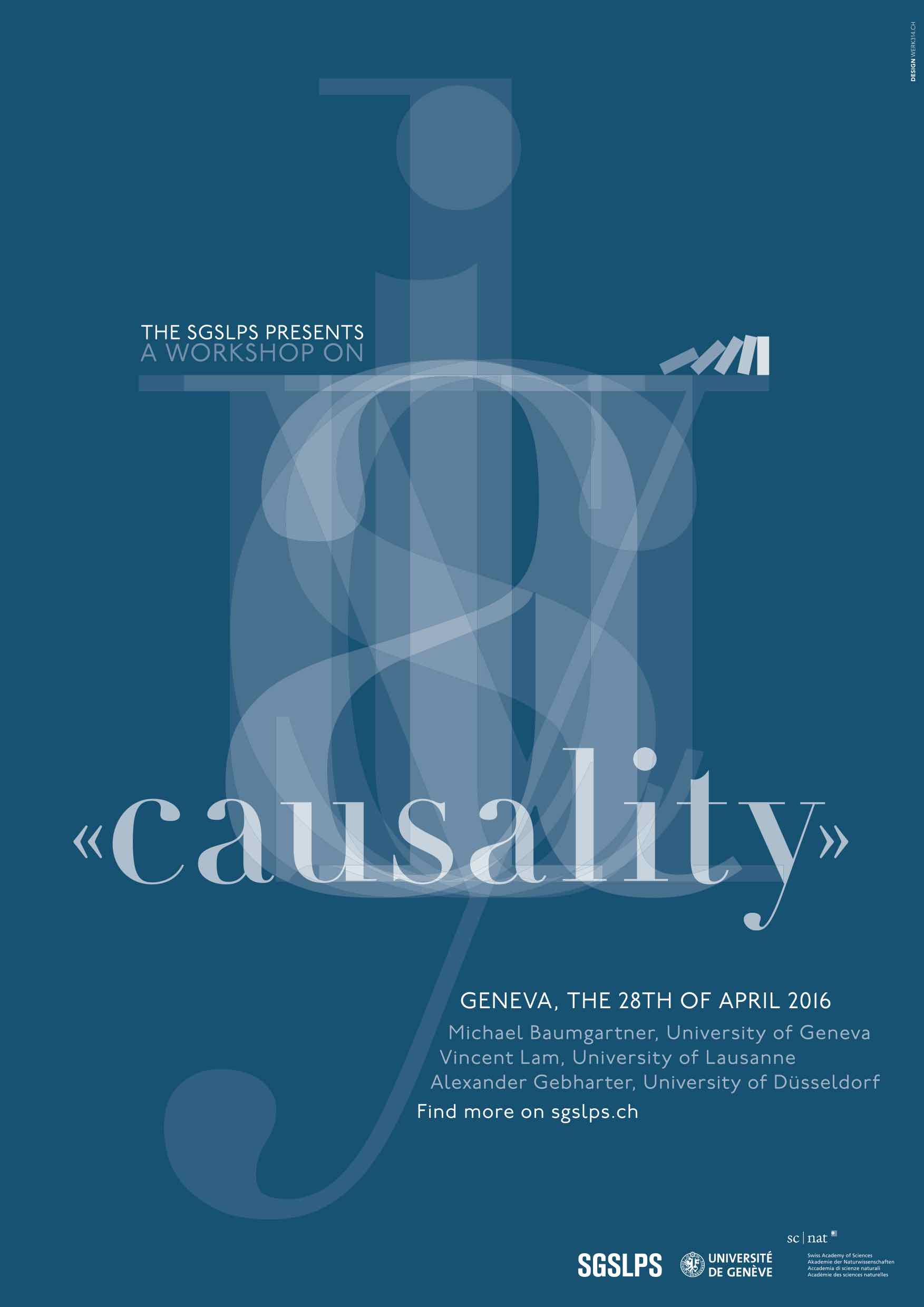
About Causality
Causal processes determine our everyday life and are at the core of many scientific disciplines. Dealing with causal relations and building causal hypotheses are among the most fundamental human activities. Although we know in many situations which particular events cause which particular effects, it is an utterly difficult task to clarify, in general terms, what is distinctive of a causal process and what distinguishes it from a non-causal process. Correspondingly, even though we frequently draw causal inferences in our everyday life, it is extremely hard to determine the fundamental rules according to which our causal inferences can be justified. Causality theorists thus aim at answering two general questions. The first one is ontological: What is a causal relation? The second one is epistemological and may succinctly be put as: How can causal relations be inferred? In this one-day workshop, the audience was introduced to the state-of-the-art frameworks for theorizing about causation and acquired a better understanding of their virtues and limitations.
Abstracts and Slides
Michael Baumgartner
Problems of a Theoretical Analysis of Causation
Although the notion of causation is one of the most frequently used notions both in everyday life as well as in science, and although we often have no problems identifying certain processes as causal, a satisfactory theoretical analysis of causation gives rise to massive problems, many of which remain unsolved even after centuries of corresponding research and philosophical reflection. Candidate theories of causation include the regularity theory, probabilistic and counterfactual theories, transfer theories, mechanistic and interventionist theories, power and dispositionalist theories. This introductory tutorial will give an overview over the main problems impeding the theoretical analysis of causation as well as the main theory candidates.
Vincent Lam
Causality and Dynamical Spacetime
Space and time play important roles for understanding causality. Contemporary fundamental physics suggests radically new perspectives on space and time. This talk will discuss the relationships between causality and the dynamical structure of spacetime in the context of the theory of general relativity, as well as some of the issues raised by the main research programs in quantum gravity.
Alexander Gebharter
Causal Reasoning and Inference with Causal Bayes Nets
The ability of distinguishing between cause and effect is essential for us human beings (as well as non-human animals) to comprehend nature and to interact with our environment according to our needs and desires. We thereby heavily rely on causal reasoning and inference. One of nowadays most powerful tools available for causal reasoning and inference is the theory of causal Bayes nets. The theory can be used as a tool for causal reasoning and inference in several ways. It can be used to formulate and empirically evaluate simple or complex causal hypotheses. Its models can be used to predict probabilities for certain events when observing other events to occur. Moreover, it can be used to compute the probabilities of events if interventions are carried out even if only non-experimental data is available. In addition, a multitude of reliable search algorithms for causal structure can be developed within the theory’s framework for various situations and preconditions. This talk illustrates how the theory of causal Bayes nets can be used as a tool for causal reasoning and inference. I present the basic notions and conditions of the theory. I then show how the theory can be used for building models and for testing causal hypotheses. I will also briefly discuss the difference between observation and intervention and how post intervention distributions can be computed in causal Bayes nets. As a last step, I present a simple search algorithm and also discuss how interventions can be used for causal discovery.